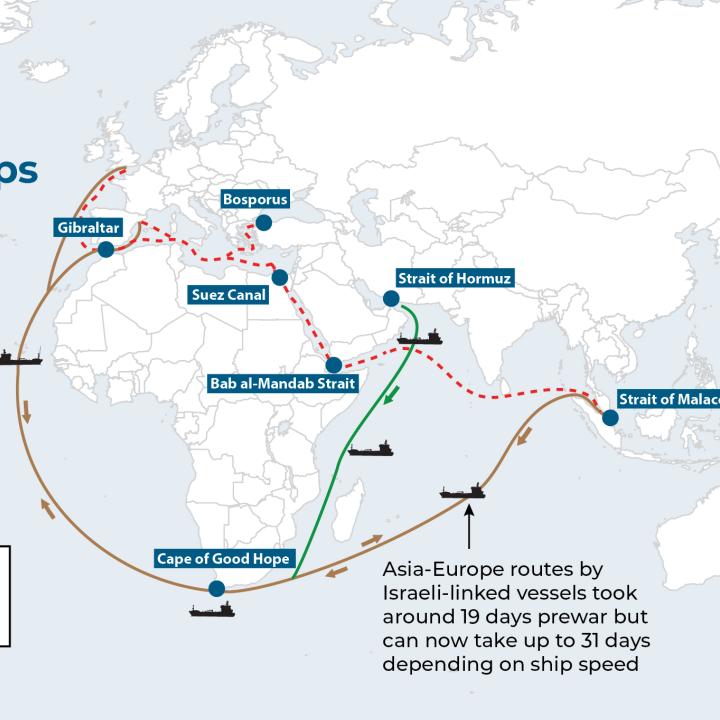
Navigating Maritime Challenges: The Red Sea Security War
The Red Sea, once a corridor of tranquility, has become a battleground for security concerns, giving rise to what is now known as the Red Sea Security War. This exploration delves into the multifaceted dimensions of this conflict, examining its historical context, key players, and the far-reaching implications for regional and global security.
Historical Echoes: The Evolution of Security Dynamics
The roots of the Red Sea Security War can be traced back through the annals of history. From ancient trade routes to colonial ambitions, the region’s strategic significance has always been intertwined with security considerations. Understanding the historical echoes provides valuable insights into the complexities of the contemporary security challenges in the Red Sea.
Contemporary Flashpoints: Mapping Security Concerns
In the contemporary era, the Red Sea Security War unfolds as a complex interplay of geopolitical interests, territorial disputes, and maritime security concerns. Nations, both regional and global, navigate the waters of the Red Sea, each asserting its security imperatives. The mapping of security concerns in this dynamic region highlights the challenges faced by security forces.
Naval Strategies: Securing Maritime Dominance
Central to the Red Sea Security War are the naval strategies employed by nations vying for control. From the deployment of naval fleets to the establishment of coastal defenses, the conflict underscores the pivotal role of maritime dominance in shaping the security landscape. Naval strategies become key determinants of success in this theater of security operations.
Strategic Chokepoints: Security Challenges in Narrow Passages
Strategic chokepoints, such as the Bab el Mandeb Strait, emerge as focal points of security challenges in the Red Sea. Control over these narrow passages is not only a matter of maritime strategy but also a critical element in securing regional stability. The Security War intensifies around these strategic chokepoints, emphasizing their significance in the broader security context.
Technological Warfare: The Arms Race in Security Innovation
The Red Sea Security War introduces an era of technological warfare, where nations invest in cutting-edge security innovations. Surveillance technologies, naval capabilities, and strategic infrastructure play crucial roles in shaping the security landscape. The arms race in security innovation amplifies the challenges and complexities faced by nations involved in the conflict.
Economic Impacts: Security’s Ripple Effect on Global Trade
The security war in the Red Sea ripples through the global economy, impacting trade routes and international commerce. Disruptions to maritime security can lead to economic uncertainties, affecting the flow of goods and trade patterns. The far-reaching economic impacts of the Red Sea Security War underscore the interconnectedness of security and global prosperity.
Humanitarian Considerations: Security Challenges for Coastal Communities
Beyond geopolitics and economics, the Red Sea Security War introduces humanitarian considerations. Coastal communities bear the brunt of security challenges, facing displacement, insecurity, and disruptions to daily life. Balancing security imperatives with the well-being of these communities becomes a complex task in the broader context of the security war.
Red Sea Security War Link: Delving Deeper into Security Dynamics
For those seeking a deeper understanding of the security dynamics in the Red Sea Security War, click here. This link offers additional insights into specific security strategies, geopolitical developments, and the intricate balance of power that defines the security conflict within the Red Sea.
Global Ramifications: The Security War’s Impact on the World Stage
While localized, the Red Sea Security War has global ramifications. The security outcomes, alliances formed, and power shifts influence international relations and global security dynamics. The interconnectedness of security challenges in the Red Sea underscores the need for a comprehensive and cooperative approach to address the broader implications.
Towards Security and Stability: Diplomacy Amid Conflict
As the Red Sea Security War persists, the imperative for diplomatic solutions becomes increasingly critical. Navigating towards security and stability requires dialogue, cooperation, and a commitment to addressing the root causes of the conflict. Diplomatic efforts become essential in fostering stability and mitigating the risks associated with the ongoing security war.
Preserving Maritime Security: A Call for International Collaboration
In conclusion, the Red Sea Security War underscores the intricate interplay of security forces in a region of historical significance. Preserving maritime security requires international collaboration, where nations work collaboratively to navigate these challenging waters. Only through diplomatic efforts and a commitment to shared security can the Red Sea emerge from the shadows of the security war into a beacon of cooperative maritime endeavors.
